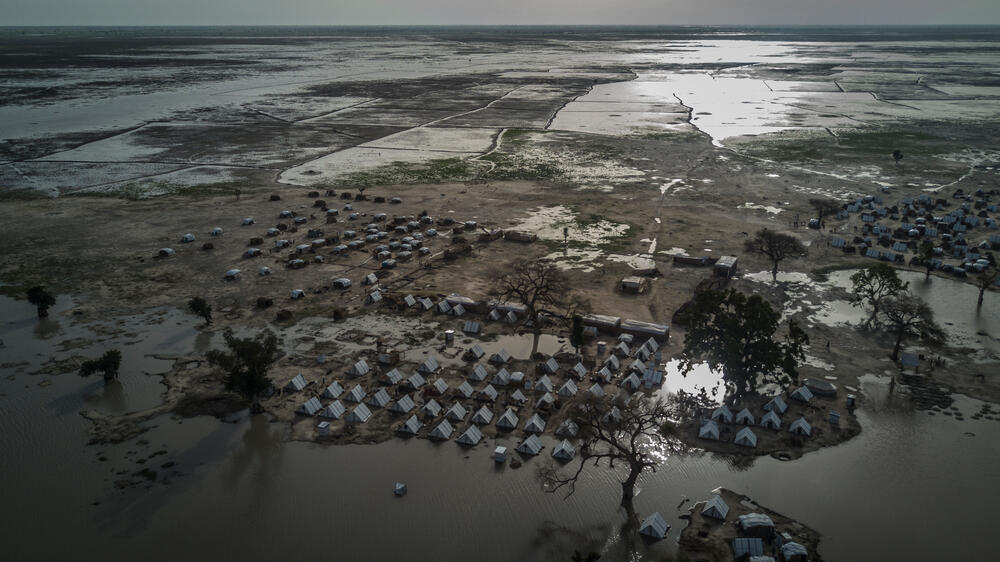Climate emergency: MSF warns of health and humanitarian dangers in new report
In a new report, Médecins Sans Frontières / Doctors Without Borders (MSF) is raising the alarm on the impact of climate change and environmental degradation on health and humanitarian crises.
MSF teams launch emergency responses to many of the world’s most drastic conflicts, natural disasters, disease outbreaks and displacements. However, we are now witnessing the magnified impact that climate change and environmental degradation can have on these events and the extremely vulnerable people caught in them.
Now, the experiences of MSF staff from around the world are included in a ‘humanitarian brief’ for a new report, Countdown on health and climate change: Code red for a healthy future, produced by medical journal, The Lancet.
Climate-induced disasters
In the Countdown report, staff across MSF share their stories about how climate change has exacerbated the crises they face.
These experiences highlight our recorded observations of how environmental change and climate-induced disasters have contributed to healthcare issues that include:
- Increased transmission of infectious diseases such as malaria, dengue fever and cholera
- Water scarcity and food insecurity leading to malnutrition
- Heat exposure leading to acute dehydration
- Mental health impacts due to extreme weather events
“MSF teams are medical humanitarians, not climate scientists," says Carol Devine, lead for humanitarian action on climate and environment for MSF.
"But after years of witnessing how climate change has likely exacerbated health and humanitarian crises in multiple contexts where we work, we are compelled to speak out about what we see.”
Scroll down for climate snapshots from three countries where we work, taken from MSF’s humanitarian brief for the Countdown report.
Somalia
Climate change, instability and malnutrition
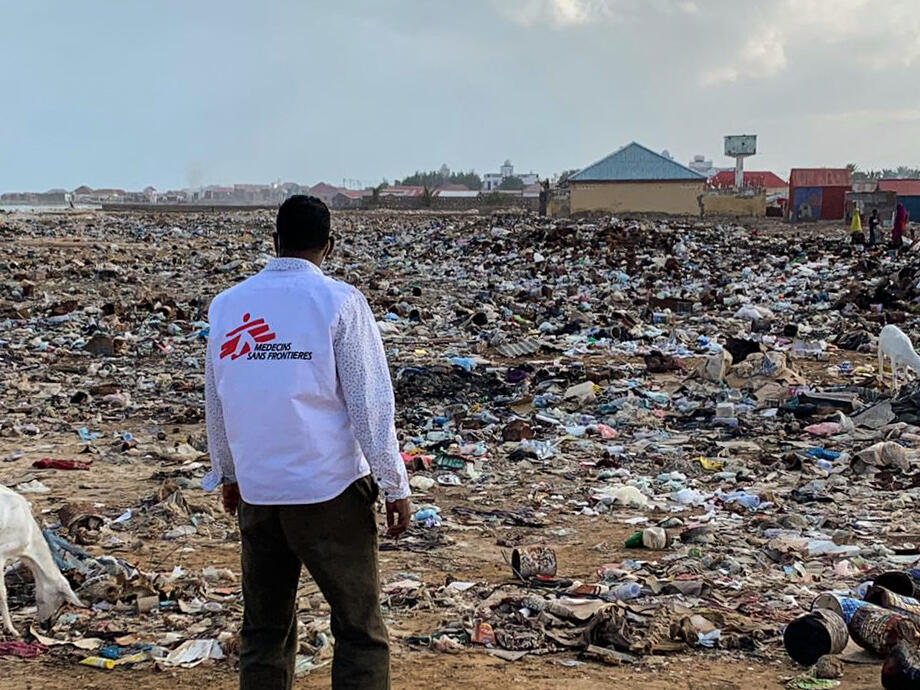
In Somalia, over two decades of conflict, political instability and extreme climatic conditions have led to one of the most protracted humanitarian crises in the world.
Intense and frequent floods, droughts and desert locust swarms have combined to disrupt food security and harm livelihoods. This has increased competition for scarce resources, exacerbating existing tensions and affecting the most marginalised people.
The most significant impact of climate change is visible in malnutrition among children.
If climate change continues as projected, MSF warns that lower food production and the reduced nutritional quality of some cereal crops threatens to increase the risk of malnutrition, with infants often the worst affected.
In response, MSF runs a ‘hunger gap’ programme in southern Somalia. This aims to prevent and address acute malnutrition during the so-called 'lean season' (the period between planting and harvesting crops) through active surveillance, screening, and ambulatory treatment.
In Gedo and the Lower Juba regions, we launched three emergency responses to treat children for severe acute malnutrition and address critical water shortages.
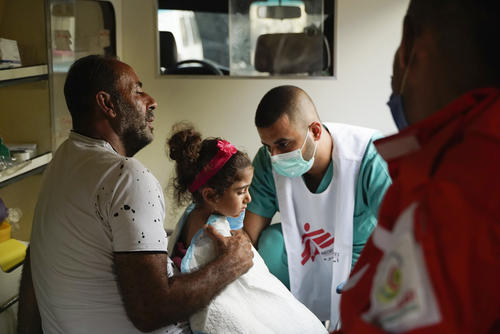
Get closer to the Frontline
Get the latest news, stories and updates, straight to your inbox.
“More people are moving in search of food and water, even as the risk of COVID-19 remains and a measles outbreak continues unabated in Dhobley and Kismayu.
“Pastoralist communities are also affected as they have lost livestock that have reportedly died of thirst due to water shortages.”
Mohamed Ahmed, MSF’s project coordinator in Jubaland
Honduras
A healthcare system damaged by climate disaster
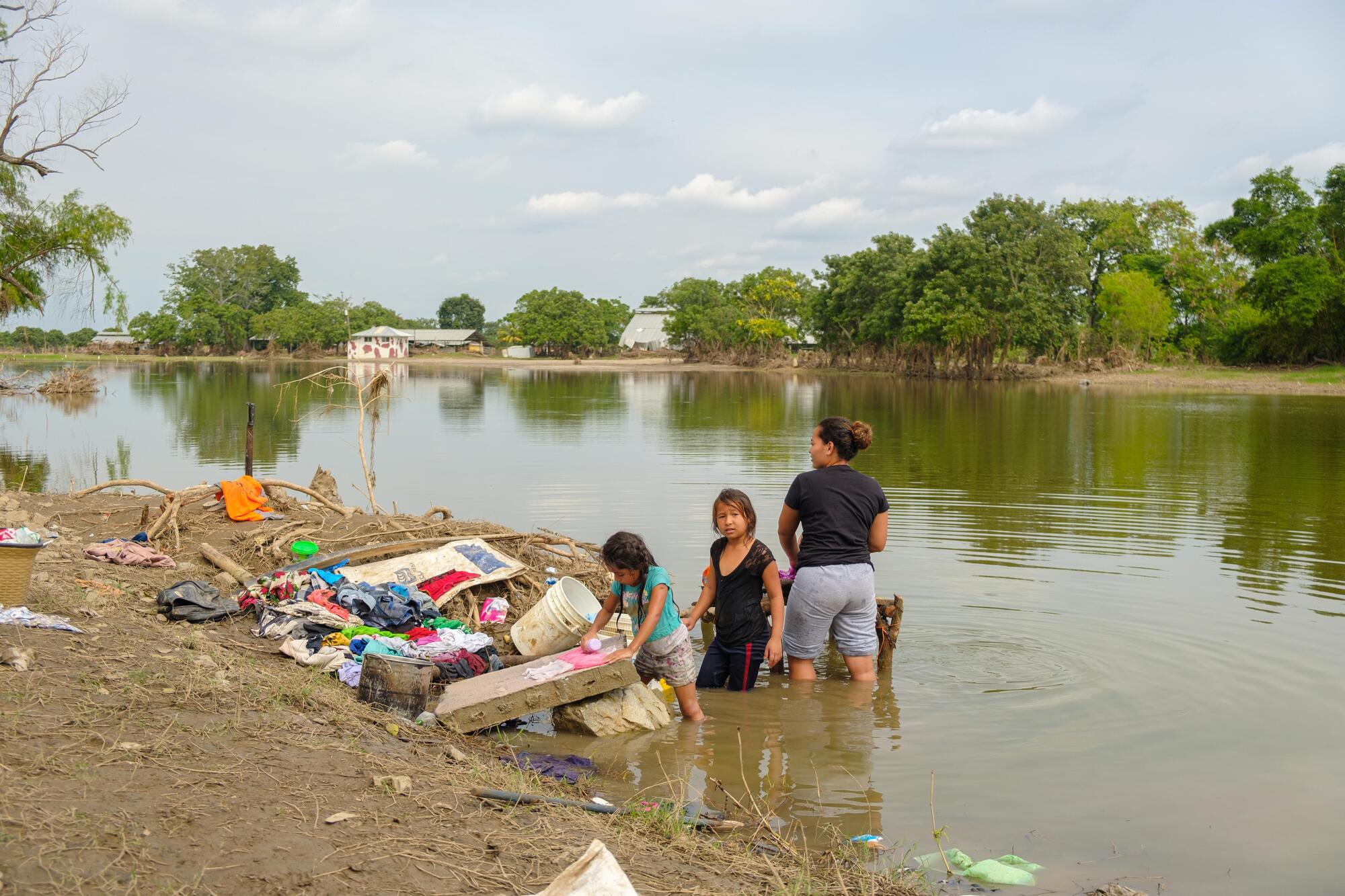
In late 2020, when hurricanes Eta and Iota hit Central America in quick succession, more than 120 health centres in Honduras were damaged or destroyed – some simply disappearing into the mud. Two million people were left with limited or no access to care.
Yet, even before the storms, the healthcare system in Honduras had been under considerable strain.
Hospitals struggled to accommodate COVID-19 patients, while a dengue fever outbreak driven by insecticide-resistant mosquitoes loomed as a result of poorly-coordinated control efforts.
To address this, MSF began measures to bolster the healthcare system’s resilience to climate-related threats in Honduras.
These include mosquito control activities and a dengue fever surveillance system to pre-empt outbreaks, which place additional stress on the healthcare system.
“We have slept in the fields. We have endured hunger and sleepless nights. At the Coatzacoalcos shelter, they told us that it was closed.
“I am afraid of staying on the street because anything can happen to us. I am afraid that my son will be taken from me. I don't sleep because while my son sleeps, I keep watch.”
Kimberly, a Honduran woman who lost her belongings in hurricanes while migrating through Mexico
Pakistan
Powering healthcare with solar energy
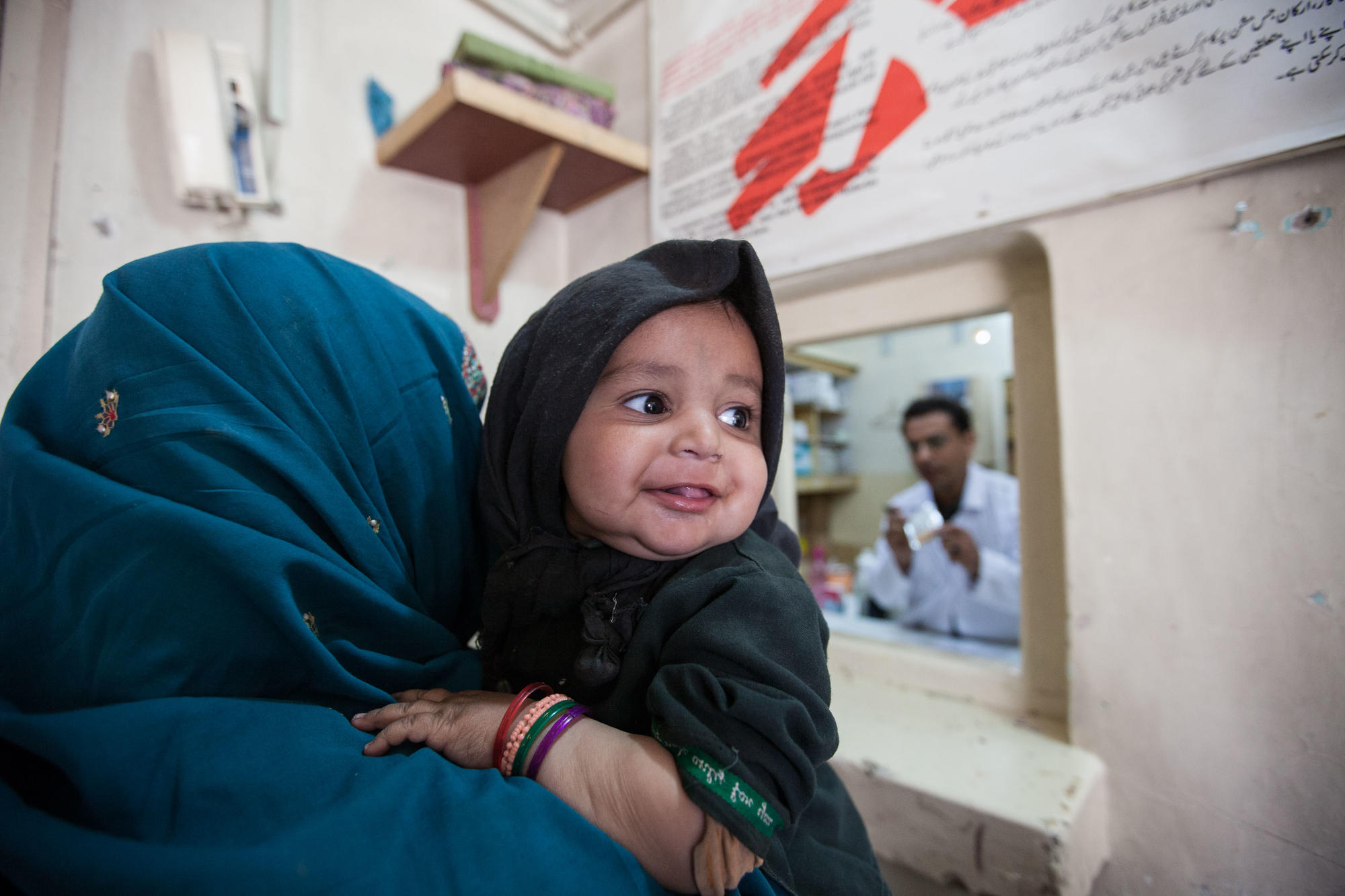
In four districts of Balochistan, Pakistan, MSF supports healthcare facilities that treat more than 12,000 expectant mothers and approximately 10,000 children suffering from malnutrition each year.
However, with frequent power cuts and temperatures reaching 50 degrees Celsius in the summer, it’s increasingly difficult to maintain a cool temperature for patients, healthcare workers and storing medicines.
To address this, MSF has installed solar panel systems at the facilities it supports in Dera Murad Jamali, Chaman and Kuchlak.
Supplemented by grid or generator electricity, these systems provide uninterrupted power for lighting, air conditioning and fans, water pumping and cooling, while reducing carbon emissions by more than 50,000 kg per year.
“As medical practitioners, our job is not only to treat people, but to prevent future illness from occurring.
“We must not create problems for tomorrow while trying to solve the health problems of today.”
Dr Monica Rull, MSF medical director
MSF and the climate emergency
The climate emergency is also a healthcare emergency. When extreme weather events occur, it is the most vulnerable people who suffer the most.
This crisis isn’t only about the catastrophic cyclones and typhoons that hit the headlines. This is about the spread of deadly disease that can follow. The increasing risk of drought and famine. Of rising water levels. Desertification. The mass displacement of people from their homes…
In every way, climate change is a massive humanitarian emergency.
